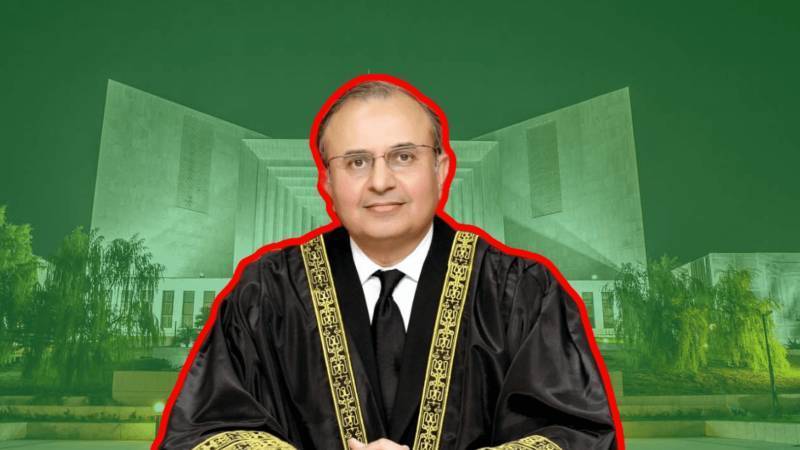
Institutions can only grow through negotiation and communication, while the system of Alternate Dispute Resolution (ADR) could provide a solution in Pakistan's landscape, which has millions of cases pending in its courts and with thousands of new cases instituted every day and eradicating the backlog may not even be possible.
“ADR is absolutely essential. I have said this many times. I don’t think we can get rid of or deal with 2.4 million cases in Pakistan where they are right now," said Supreme Court's Senior Puisne Judge Justice Syed Mansoor Ali Shah on Tuesday at the certificate awarding ceremony upon the conclusion of a two-day workshop on “Negotiation Mastery: Theory, Jurisprudence and Practice.” The workshop had been jointly organised by the Department of Law at the Fatima Jinnah Women's University and the Federal Judicial Academy in Islamabad.
Justice Shah said: “District and sessions judges must promote a culture of negotiation, communication, sharing and caring and that will help to deliver the best [justice].”
About the ADR, Justice Shah believed that Pakistan comes from a litigant society.
"The pendency is rising, and the number of judges we have is only 4,000. I don’t think litigation is an answer to it," he said, noting that case pendency is rising with the admission of new cases daily.
"There has to be some alternative solution to this entire litigation landscape we have, and the only option is ADR; it is not rocket science. It is happening all around the world."
Noting that Pakistan has ADR facilities, Justice Shah added: "I think the best migration or the best solution to litigation is the ADR. We must move to ADR.”
Justice Shah went on to term ADR as the smart solution to rising litigation and pendency. He also reiterated his firm belief in establishing ADR Centres at the district level across the country so that maximum cases could be addressed in the ADR Centres to ensure expeditious justice for citizens.
He also appreciated the term “ADR Renaissance in Pakistan” coined by Dr Jo DelaGarza-Chitlik.
Islamabad High Court's Justice Mohsin Akhtar Kayani said, “Negotiations are essential and important, but a judge should not cross that red-line so no one could call that judge a 'biased judge'.”
Speaking about the power of negotiation, Justice Kayani shed light on various historical attainments on the diplomatic and socioeconomic fronts, among others, through negations in Pakistan's history.
The senior puisne judge of the Islamabad High Court also enlightened the participants about renowned American lawyer James B Donovan, who defended an alleged KGB spy, Rudolf Abel, in the US courts. He was eventually called upon to negotiate an exchange of Rudolf with a US pilot, Francis Powers, who had been caught in the Soviet Union.
Renowned ADR professor and licensed mediator from the US Department of State, Dr Jo DelaGarza-Chitlik, appreciated the keen interest of the participants in taking, learning, and mastering the concepts of negotiation and applying the concepts. It is very hard to do so much in a very short period, she said and congratulated the workshop participants.
“I hope you will take this opportunity and be a part of the ADR movement in Pakistan. You are truly living in a moment of special. History is being made. There are a few times in life when we can actually say that we are living history and we are living history now. We are so fortunate to be guided in this journey by Justice Shah, a man of vision and a man of forward-thinking, who will take Pakistan into a new era of conflict resolution”, she maintained.
Federal Judicial Academy Director General Hayat Ali Shah spoke about the two-day workshop and paid tribute to all stakeholders with a special mention of Lahore High Court's Justice Jawad Hassan, who worked to bring the workshop to the FJA.
Regarding negotiations, the DG of the academy said, “Negotiation is a very good mode of management. If you stop negotiations, whispering starts; and when many people whisper, then whispering campaigns start; and when there is a whispering campaign, it is, in fact, the beginning of the revolution, and that is the beginning of a disaster. Therefore, this tool must be used not only for conflict resolution but only for managing the team.”
In the end, Justice Shah awarded certificates to the workshop participants.

